Overhaul of the Chinese value system: How can Chinese meet the challenges ahead?
Professor Cheng Pei-kai spoke to Lianhe Zaobao about China's history, culture, and values, and not boarding a ship that sank.
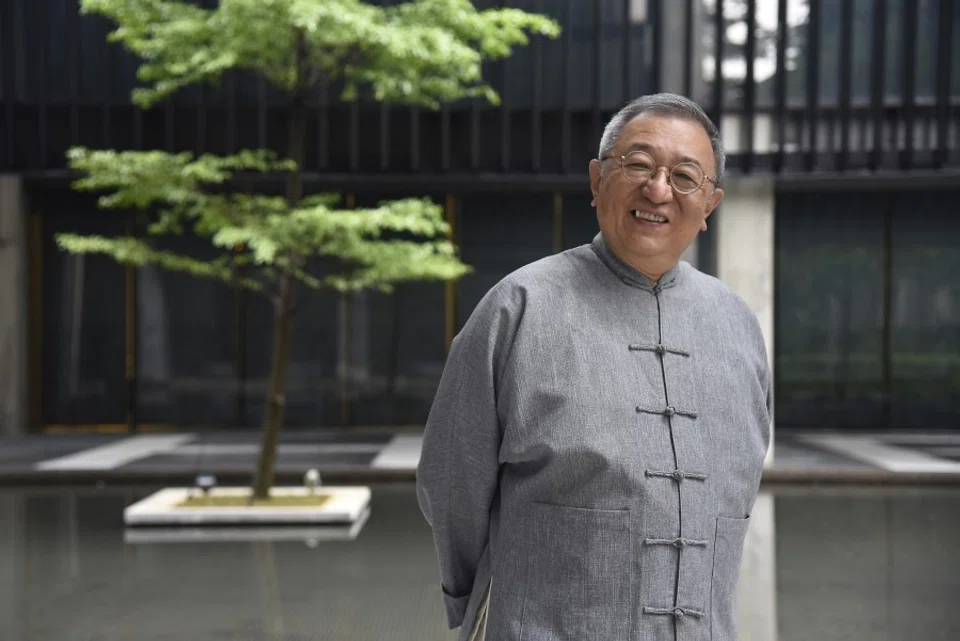
Professor Cheng Pei-kai - postdoctoral researcher at Harvard University's Fairbank Center for Chinese Studies - grew up happily immersed in Chinese history and culture, from theatre and film to food, literature, porcelain, and art. He has taught at well-known institutions in the US, China, Taiwan, and Hong Kong, and is also an expert in Chinese culture and history, Chinese aesthetics, and classical translation. In 1998, he became the founding Director of the Chinese Civilisation Centre at the City University of Hong Kong (CityU).
Describing setting up the Chinese Civilisation Centre, 71-year-old Professor Cheng Pei-kai relates a conversation with former CityU president Zhang Xingang.
"Zhang Xingang read the sciences but loved culture. He once met with some student representatives and asked them if they liked literature and ancient poetry, and which ones they liked. The first said 'Thoughts on a Quiet Night' by Tang dynasty poet Li Bai (end note 1), which turned out to be the only Tang poem that the other 20 students also knew. Prof Zhang was shocked to find how little Hong Kong youths knew about Chinese culture, so he decided to set up the Chinese Civilisation Centre and make Chinese culture a compulsory course at the university."
On HK's "hollow man" syndrome
Prof Cheng feels the education system had something to do with the Hong Kong youths' poor knowledge of Chinese culture. During the British colonial period, teaching Chinese history at secondary school level was strongly discouraged, in case it affected British rule in Hong Kong. Chinese history was made a course on its own in secondary schools in 1965, but was generally not given much weight. In 2000, it was made a non-compulsory course, but was made compulsory again at lower secondary level in the 2018/2019 academic year.
Prof Cheng notes that students go for short-term results. Once a subject that has no immediate use is cancelled, they give it up. "The consequence is that you have no cultural bond, and society is fragmented. That is exactly what happened after about ten years. The reason behind Hong Kong's political conflicts is a complete cutting off from history and culture.
"Without cultural identity, the only choice is politics; and the choice in politics is usually to look at what is right in front of you. You cannot see anything else, nothing long-term."
Looking at the historical big picture, Prof Cheng says that over the past 150 years, a big problem with the Chinese is that in the pursuit of modernisation, traditional morals and values have gone out the window.
"Change does not mean throwing out everything. Being Chinese does not mean just political or national identity, but having a feel for the culture. Being a global citizen is not just embracing the world. That is meaningless. The worst thing is, Hong Kong youths do not understand Western culture and traditions either!
"To put it bluntly, it's like the 'hollow man' that T.S. Eliot talks about. When one is a vacuum, the only thing that can fill the gap is money and materialism.
"It's not about social aspiration, it's about individual happiness and fulfilment. At each stage of life, there will be challenges and choices. You need to be cultured in order to handle it."
On China's 2,000-year stability disrupted
Comparing Asian and Western cultures, Prof Cheng says the West has made clear and rapid progress in the three or four centuries since the Renaissance (which spanned the 14th to 17th centuries), while in the 500 years of the Spring and Autumn period and Warring States period (approximately 770 to 220 BC), then liberal-minded China also saw astounding progress.
"That period lay the foundation for the general stability over the next 2,000 years. In human history, to have 2,000 years of stability - that is not easy."
And it was too much stability that led to the subsequent revolutions.
"China has changed drastically over the past 150 years, so much so that it has become unrecognisable. When we talk about the West, we are talking about changes over three, four hundred years. The Chinese have to be clear about that.
"Each person's mission when it comes to history is to look forward. Understand the past, know about the present, and look to the future. The Chinese can do a lot in this aspect, instead of just thinking about politics.
"We are often caught in political tussles, choosing sides and parties, hitting out at those who are different than us. It's been like that since the May Fourth Movement in 1919. But when we are fighting, we cannot calmly look at historical progression and all the sea changes that are happening."
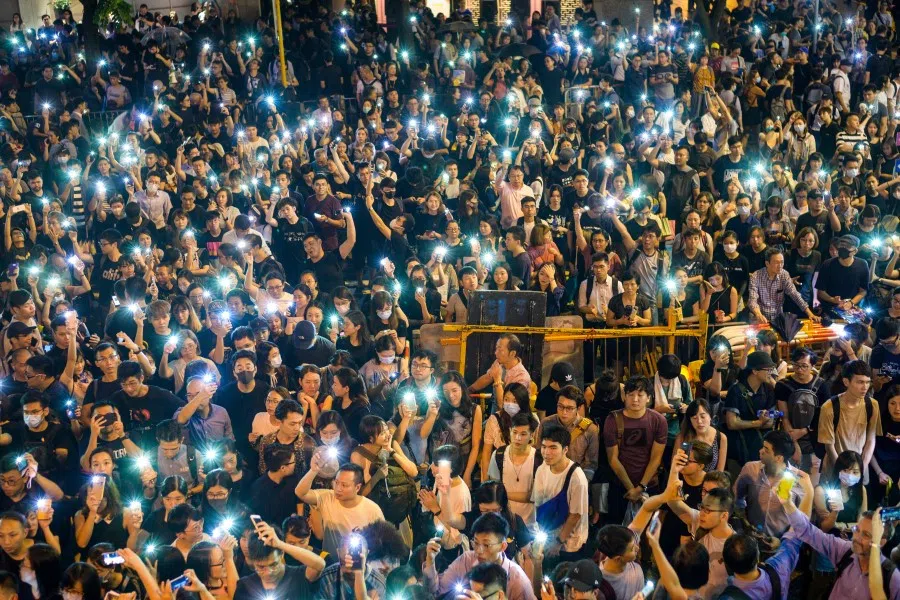
Prof Cheng feels that the Chinese who care about culture today are all products of various cultures in their own way, which shows the trend of historical progress and redefines the identity of today's Chinese.
On the three steps towards Chinese culture renaissance: empathy, patience and courage
On Chinese culture, Prof Cheng feels that first there has to be historical empathy. "How are we like the ancient Chinese? Our mindset is basically Western.
"If one does not understand traditional Chinese culture, one would easily think it is outdated and impractical. It is not impractical. It was practical in that historical context, but not now. That is a question of historical perspective. In the future, people will also think our mindset is outdated. And so those who study history talk about 'historical empathy'. People live in the context of their time, not in documents, not in the abstract."
One also needs to be patient.
"China's 2,000-year cultural framework has clearly been disrupted. And after religion, values, and cultural beliefs have been deconstructed, they have to be put together again for the long term; but no one knows how. Because shaping a cultural framework is not something that can be directed by an authority.
"The situation faced by us Chinese today is almost like the Spring and Autumn period and Warring States period, or the Hundred Schools of Thought - there is no conclusion. The Spring and Autumn period and Warring States period lasted 500 years. It takes patience. After the intensity of revolution, it takes generations for a new system to come up."
Finally, one must dare to do the impossible.
Historically, material power determines the survival of a country and individuals. Prof Cheng says this is not exactly what people want; but there is no such place as Utopia.
"China's experience is that when one is powerful, one has to be humble and respect small countries, and show some degree of cultivation. As a dominant country, the US also has to show respect for democracy and the world. Trump's hooliganism will get his own people thinking about whether it goes against the US' founding principles.
"When it comes to growing one's interests, people would think about whether it will impede long-term growth. They would be concerned about regressing to a dog-eat-dog society."
On how Europe benefited from the wars in the 19th century, Prof Cheng says even if Europe reflected on what it did, it would not cough up the goodies it has already swallowed.
"If I seized a piece of land and you asked me to give it over, I wouldn't be willing! I had a hand in revising the high school textbooks in New York, how the issue of native Americans was handled. They were badly mistreated, their land was taken over. Would it be returned? No way.
"There are too many stakes in life. But we are educators. How can we teach students that whatever they can get their hands on is theirs?
"I often say: we can only do our best. This world will not get any better. But we have to do whatever we can to make sure it does not get any worse.
"Confucius said: even if you know that something cannot be done, do it anyway - do the impossible. All intellectuals want to do certain things. You know it will not be perfect, but you do it anyway, because by doing it you prevent the worst case scenario."
However, "doing" has to be based on "knowing". Prof Cheng says each time university students say they have a right to do this and that, he tells them that young people have no right to be ignorant.
"Because ignorance not only harms others, it harms yourself. When you are ignorant, you make stupid decisions. Knowledge is vast, it is not just professional knowledge. It is not as narrow as just finding a job and earning a salary. You are still a part of society. Caring about life and the people around you is also very important."
On China's changing social hierarchy
Prof Cheng is now studying the ancient Chinese writers Tao Yuanming, Su Dongpo, and Tang Xianzu (end note 2). He says these major literary figures are the ones he respects the most.
"Because they stuck to their guns and were unwilling to just obey the government, and so they were persecuted because they did not 'give face' to others."
Prof Cheng relates how Tang Xianzu, a great playwright and poet in the late Ming dynasty, declined an invitation to be a guest of prime minister Zhang Juzheng. "He did not want to be a sycophant to Zhang and become one of his group. That attitude cost him dearly. Same for Su Dongpo.
"Now, in the 21st century, they are called great and noble. But most Confucians went into government and toed the line; they entered the Hanlin Academy (end note 3) and rose through the ranks. Because that is where the benefits were."
One interesting point he makes is that the biggest change in modern China is the change to the Imperial Exam. Today, one no longer gets power and money by taking the Imperial Exam and becoming an official. "The Chinese community is changing. China, Hong Kong, Taiwan, are all gradually moving away from that model."
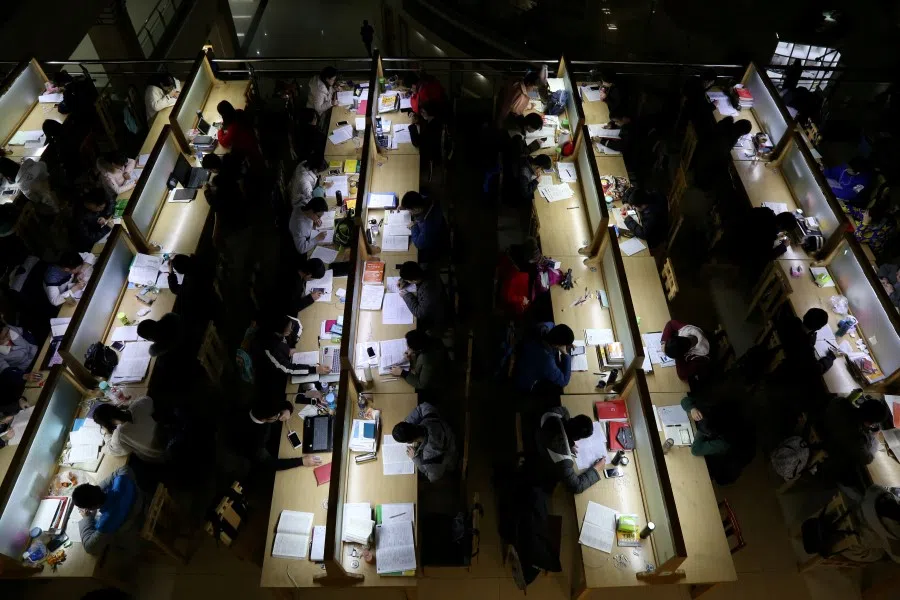
He said that traditionally, the only route to success and upward social mobility in China was the Imperial Exam, and this single path to success led to a strong sense of self-protection among the elite.
"In the 20th century, China began to fragment. Chinese business people were wealthy, but they had no social status; they were at the bottom of the social hierarchy (end note 4). And in the 21st century, under Western influence, China has continued to change, which is worrying for politicians. This tension has always been there."Prof Cheng says that in the US, there are certain sectors that are independent of politics. "China has grown and changed over the past 100 years, but we don't know how independent it will be.
On a global shift of values and why different political systems will benefit the Chinese
Prof Cheng also reminded that being cultured involves happiness, joy, and meaning, which cannot be measured in terms of material goods, which makes it difficult to assess based on whether or not there is "improvement".
He said in the 21st and 22nd century, the "improvements" to Western cultivation would also lead to self-questioning.
"In the 19th century, the Statue of Liberty in the US was a clear symbol of welcoming the suffering from all over to this land. But now, not just the US, but Europe is also starting to question its own thinking. So where is the human spirit? Is it starting to flag?"
The clashes brought about by globalisation have led Western intellectuals to question themselves. This strong spirit of critical questioning stems from the anti-government revolutions in the 18th and 19th centuries, and Prof Cheng feels that such a spirit is now starting to surface in China, but it is growing much more slowly.
"In that sense, in the 21st century, the world will see a lot of redefining and discussion of values. Young ethnic Chinese really need to know China's history and the recent major changes, as well as the developments and difficulties in the West over the past 300 years."
Prof Cheng observed that right now the Greater China region has different political systems and the Chinese community is spread out, and he believes that in the long term, this would help in exploring cultural topics.
"Now is a good time for the Chinese community to explore these topics. The Chinese community belongs to different political systems, which would allow discussion of different values and thoughts. In the long term, such a separation might not be bad. The world will be interesting in this 21st century!"
On saving his family as a 4-month-old
Prof Cheng was born in 1948 in Qingdao, his ancestors originally hailing from Rizhao city in Shandong province. It was not until he went to primary school in Taiwan that he learned his whole family nearly all perished in the sinking of the steamer Taiping.
"Some relatives and possessions went down in the incident. When my mother is in a bad mood, she says if not for me there would not have been so many things to worry about later; when she's in a good mood, she says we got lucky."
In 1949, Prof Cheng's father went ahead to Taiwan, while his mother got tickets for the Taiping on 27 January, the eve of Chinese New Year. However, because four-month-old Prof Cheng spat up his milk, his mother was worried he was too young to withstand the journey, and decided the day before the voyage to take an aeroplane instead.
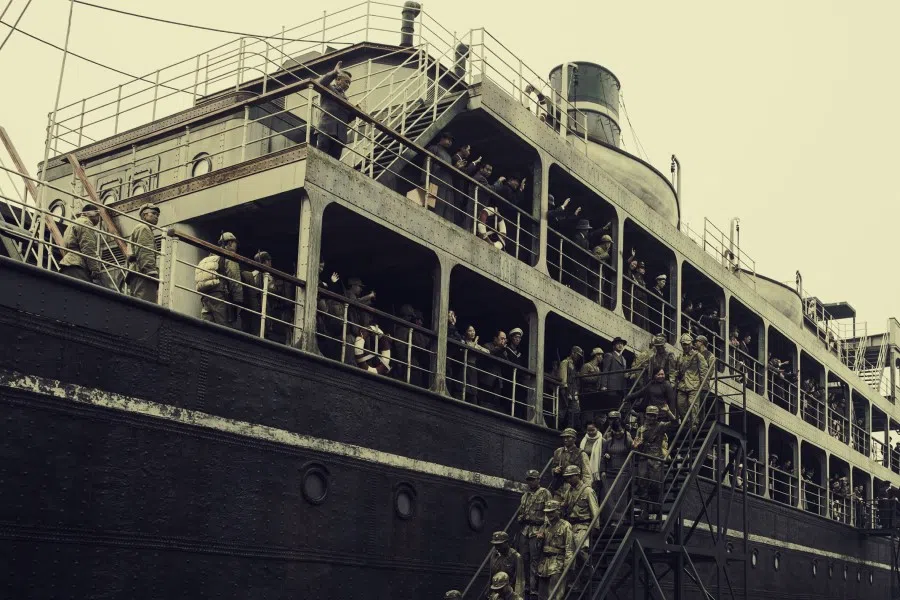
The overloaded Taiping did not have its lights on and collided with a cargo ship on its way from Shanghai to Keelung. Both ships sank; over 900 people on the Taiping lost their lives.
"My friends laugh at me for saving my family by spitting up milk." Prof Cheng still sighs each time he mentions this.
On being an absent son
Despite saving his family as a baby, as a young man, Prof Cheng was not always there for them.
His father was a Qing dynasty industrialist in the chemical industry, and was also in charge of the fishing and maritime produce industry for the Yellow Sea area. On moving to Taiwan, he hoped his son would go into the sciences, but the boy fell in love with the magic of words and everything cultural, and wanted to be a poet.
The rebellious young Prof Cheng made an agreement with his father not to take any money from the family for his university studies and to plan his own life, and registered to read foreign languages at the National Taiwan University. In fact, he grew up immersed in culture; his father was a good calligrapher and collected calligraphies and paintings, while his mother took him to watch Beijing opera.
In 1969, Prof Cheng became the first PhD student of China expert Jonathan Spence in Yale University, with Prof Yü Ying-shih (end note 5) his thesis assessor. While in the US, the hot-blooded Prof Cheng participated in many political activities, including joining a demonstration outside the Japanese embassy in 1971 as part of the Baodiao Movement asserting China's sovereignty over the Diaoyu/Senkaku Islands; in 1976, he visited mainland China with his classmates and got blacklisted by the Taiwanese government, and could not return home for 20 years.
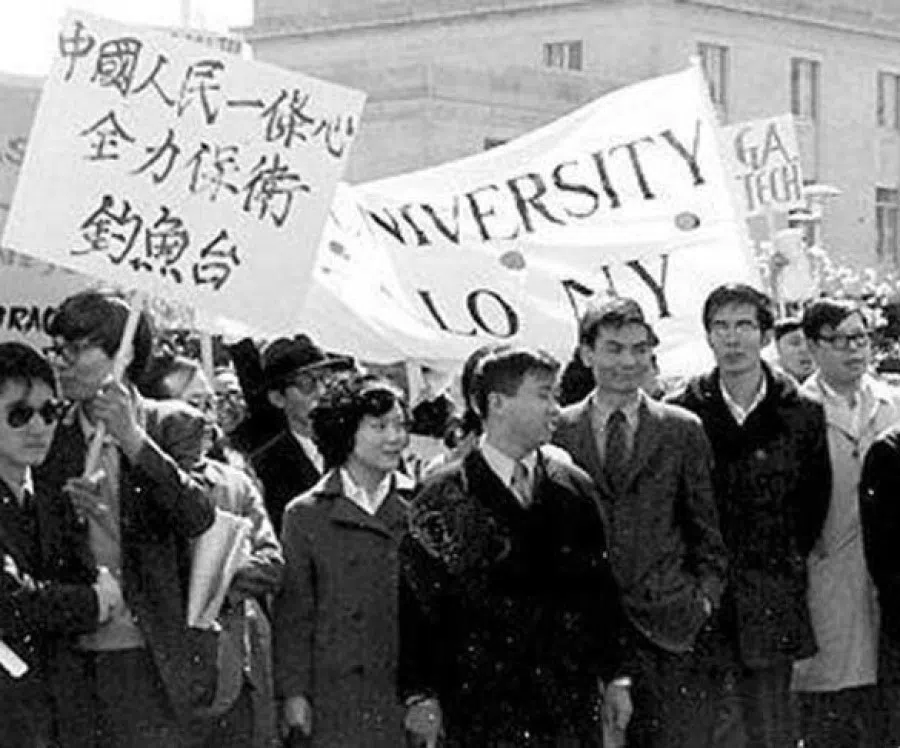
Prof Cheng recalls: "My parents wanted me to write a confession and come home. But I felt I had done nothing wrong, so why should I apologise and write a confession? Did they not teach me to love my country?
"My parents felt I was disobedient. That incident made a big impact on me. In life one has to make choices with consequences, and handle those consequences."
His elderly father did not like long-distance travel, and so they did not meet for 20 years. Finally, in 1990, through the efforts of Prof Yü, Prof Cheng returned to Taiwan and saw his nearly 80-year-old father again.
"Old people are intriguing. All he said was: 'Oh, you're back.' (pauses) I think that means a lot."
Notes:
'Thoughts on a Quiet Night' (《静夜思》) is arguably the best-known Tang dynasty poem among the Chinese-speaking community.
Tao Yuanming (365?-427) was a Chinese poet who lived during the Eastern Jin (317-420) and Liu Song (420-479) dynasties. After his resignation from civil service, he lived as a recluse, and became known for his simple and direct poetry. Su Dongpo (1037-1101) is one of the best-known Chinese writers, a key literary figure from the Song dynasty who also contributed to politics and gastronomy: the dish called Dongpo pork is named after him. Tang Xianzu (1550-1616) was a Ming dynasty playwright, whose major works are collectively known as the Four Dreams.
The Hanlin Academy was a Tang dynasty academic and administrative institution established by Emperor Xuanzong, made up of elite scholars. It was damaged by fire in 1900, and closed during the Xinhai Revolution in 1911.
In ancient Chinese society, merchants ranked below scholars, farmers, and craftsmen, in that order.
Yü Ying-shih (1930-) is a Chinese-American historian and China expert, particularly in Chinese philosophy and history.


![[Big read] When the Arctic opens, what happens to Singapore?](https://cassette.sphdigital.com.sg/image/thinkchina/da65edebca34645c711c55e83e9877109b3c53847ebb1305573974651df1d13a)


![[Video] George Yeo: America’s deep pain — and why China won’t colonise](https://cassette.sphdigital.com.sg/image/thinkchina/15083e45d96c12390bdea6af2daf19fd9fcd875aa44a0f92796f34e3dad561cc)